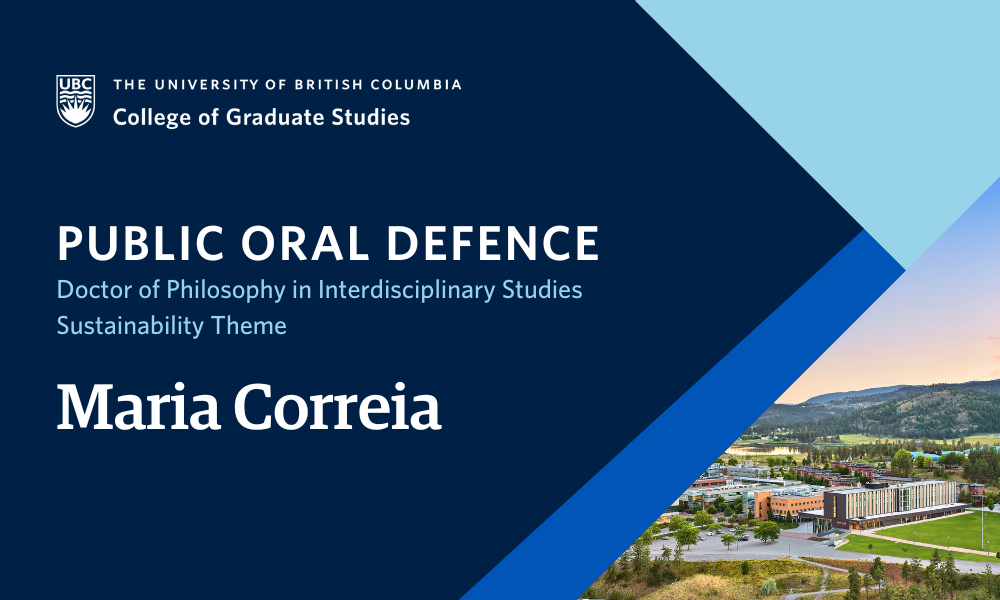
- This event has passed.
Dissertation Defence: Navigating Cross-cultural Confluences: Ethical Space Engagements on Humanh—Water Relations in the Okanagan
April 23 at 9:00 am - 1:00 pm

Maria Correia, supervised by Dr. Aleksandra Dulic, will defend their dissertation titled “Navigating Cross-cultural Confluences: Ethical Space Engagements on Human-Water Relations in the Okanagan” in partial fulfillment of the requirements for the degree of Doctor of Philosophy in Interdisciplinary Studies – Sustainability theme.
An abstract for Maria Correia’s dissertation is included below.
Examinations are open to all members of the campus community as well as the general public. Registration is not required for in person exams.
ABSTRACT
This dissertation explores the concept of ethical space engagement, examining the intricate interplay between Indigenous and Western perspectives in the context of water stewardship in the Syilx Okanagan Territory, British Columbia, Canada. Conducted under the multi-year “Waterways Past, Present, and Future” project, this research involved four separate inquiries that employed qualitative methods to navigate respectful spaces for Indigenous and non-Indigenous interactions. The dissertation comprises four manuscripts. The first presents a case study on the restoration of sockeye salmon through a tripartite Syilx-Federal-Provincial co-management arrangement; the second examines the divergent and convergent perspectives of the Syilx and non-Indigenous communities on water governance and stewardship and implications for an ‘ethical space’ for engagement; the third explores the intersection of Western-oriented co-design and Indigenous research methodologies applied in the Waterways research and exhibition; and the fourth presents an evaluation of the Waterways exhibition and its effectiveness in creating a reflective space to engage with diverse water ontologies applying visual matrix tool. These manuscripts collectively reveal the complexities of cross-cultural collaboration in the Okanagan, centering around four main themes: ethical space as a multifaceted concept for cross-cultural understanding, the pivotal role of Syilx rights and self-determination in water governance, the collaborative concept of traditional ecological knowledge, and two-eyed seeing as a method for bridging cultural and methodological divides. The research contributes to the literature on Indigenous governance, emphasizing the importance of self-determination and Indigenous rights as it relates to water stewardship. It advocates for the conceptual and practical implementation of ethical space and two-eyed seeing, along with the application of traditional ecological knowledge, to foster balanced and sustainable collaborations in water stewardship.